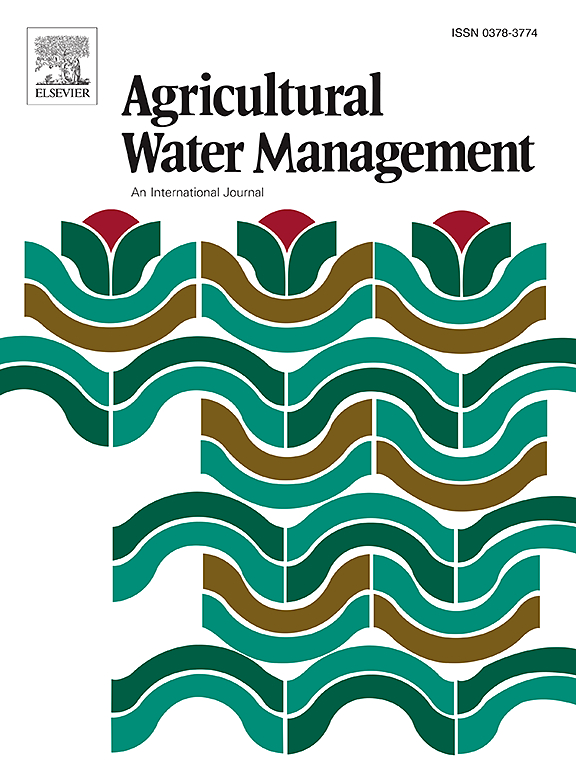How does farmer differentiation effect agricultural water use efficiency? Evidence from China
IF 5.9
1区 农林科学
Q1 AGRONOMY
引用次数: 0
Abstract
Farmer differentiation is a prevalent phenomenon in developing countries, such as China, which is expected to have a profound effect on rural collective actions, especially in the realm of agricultural irrigation. Despite this, few studies have been conducted to investigate the impact of farmer differentiation on agricultural water utilization. This research utilizes China's provincial panel data to construct indicators of farmer differentiation and agricultural water use efficiency through the entropy method and super-efficient DEA, and investigate how farmer differentiation affects agricultural water use efficiency. Our findings reveal a significant negative effect of farmer differentiation on overall agricultural water use efficiency. Mechanism analysis indicates that inadequate facility management has a negative mediating effect between farmer differentiation and agricultural water use efficiency, while large-scale grain crop production has a positive mediating effect. Additionally, the investment in small farmland water conservancy and central investment have a positive moderating effect. Notably, when the proportion of investment in maintenance of farmland water conservancy exceeds a certain threshold, the negative impact of farmer differentiation on agricultural water use efficiency can be eliminated. This study provides targeted recommendations on how to improve agricultural water use efficiency in the current situation of farmer differentiation.
求助全文
约1分钟内获得全文
求助全文
来源期刊

Agricultural Water Management
农林科学-农艺学
CiteScore
12.10
自引率
14.90%
发文量
648
审稿时长
4.9 months
期刊介绍:
Agricultural Water Management publishes papers of international significance relating to the science, economics, and policy of agricultural water management. In all cases, manuscripts must address implications and provide insight regarding agricultural water management.
 求助内容:
求助内容: 应助结果提醒方式:
应助结果提醒方式:


